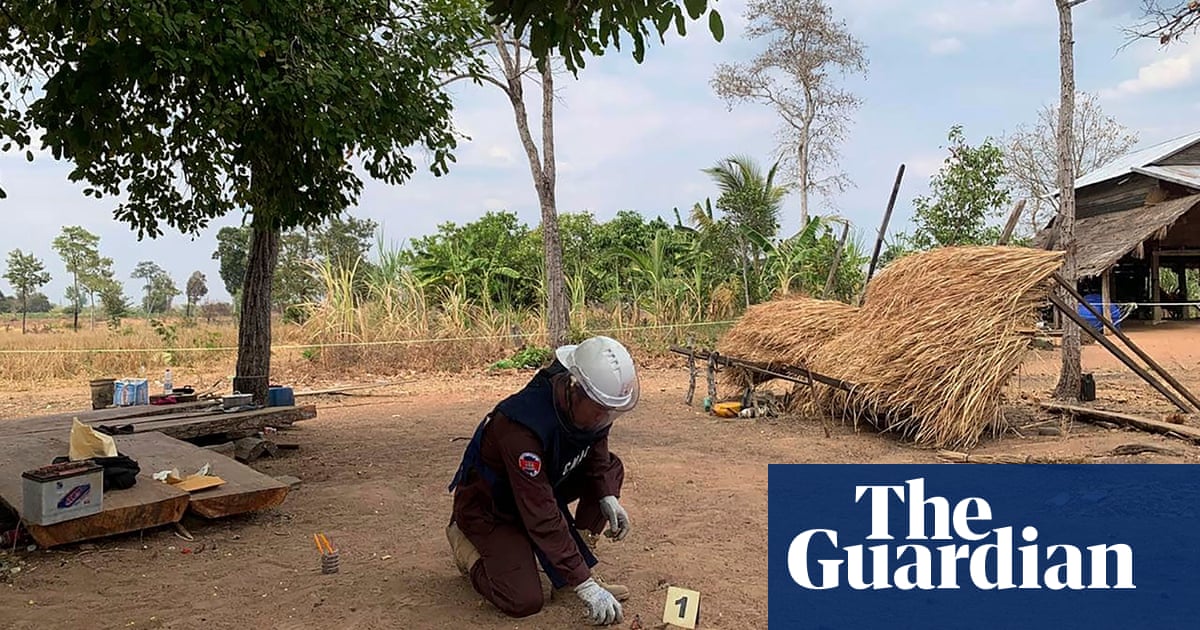James Longman is an English broadcast journalist who was the BBC’s man in Beirut before joining US network ABC, where he is now chief international correspondent. He has reported from wars in Syria and Ukraine and covered Covid lockdowns, the queen’s funeral and the 2018 cave rescue in Thailand.
On screen, Longman is the type of British journalist that Americans love: eloquent, charismatic and unflappable. Behind the composure, however, runs a tragic legacy of mental illness. In 1996, when he was nine, Longman’s father John, an artist who had been diagnosed with schizophrenia in his 20s, died after setting fire to his Notting Hill flat. Longman’s paternal grandfather also killed himself, and his mother, too, has endured mental health struggles. Longman’s own experiences with depression from his mid-20s onwards have prompted him to wonder: “Does sadness run in families? Have I inherited mental illness?”
He first probed these questions in a segment for the BBC in 2016, which brought him into contact with fellow sufferers and pioneering researchers at King’s College London. Now he has expanded his investigation into a book that attempts to fuse a pop-science precis of the genetics of mental illness with family memoir. It’s a potentially awkward combination, made less promising still by the fact that – as Longman readily admits – he’s not very science-minded. “I’m practically innumerate,” he writes, “and was absolutely useless at science and maths in school.”
So it’s a pleasant surprise that, for all the forewarnings, The Inherited Mind succeeds on both counts. As memoir it is genuinely compelling, largely because, in keeping with a “family tradition of shame and secrecy”, there was so much that Longman didn’t know about his father. He wasn’t told that John’s death was suicide until his teens, and only learned the full details when he was 26, though much else remained obscure. Researching this book shed light not just on the events leading up to his father’s death – illuminated by medical notes and meetings with NHS carers – but also his life, which was much broader and richer than the illness that claimed it. Tracking down John’s old friends from art school, now in their 70s, Longman learns about his father’s youthful quests for meaning through bohemian living, painting and transcendental meditation (which his family believed was responsible for triggering his first psychotic episode).
Longman’s research also brings him closer to his mother, whom he initially portrays as an unstable, “histrionic” presence. Traumatised by her husband’s illness and death, she came to believe that her son, who routinely puts himself at risk in conflict zones, was also afflicted with “the Longman curse”, as she calls it. It’s only later in the book that we hear about her experiences first-hand and Longman allows his long-held frustrations to ease into compassion.
All of this deepens rather than dilutes the scientific side of the book, which is written with a carefulness and clarity that belie Longman’s caveats. Is there indeed a “curse” hanging over his family, an intergenerational legacy of mental illness written into his DNA? Or can his bouts of depression be explained solely by environmental factors, not least the defining trauma of his childhood? Here, Longman dips into recent advances in the genetics of mental health, powered by breakthroughs in neuroscience and developments in brain mapping. In the past few years, researchers have identified genetic variants that may increase the risk of developing illness. “Depression is about 40% heritable,” one researcher tells him, whereas in cases of bipolar disorder and schizophrenia it’s more like 70%-80%.
Longman is quick to point out that this is an emerging field of research with plenty of critics – he cites a few without speaking to any directly – but the evidence that there’s a genetic component to mental illness is becoming more compelling by the day. So too is research suggesting that our experiences in life, positive or negative, can affect us on a genetic level, meaning, as Longman puts it, that “the effects of environmental traumas can also be inherited”.
One response to this research, if there is mental illness in your family, is to feel trapped – locked into an intergenerational cycle of trauma that you’re powerless to escape. But Longman sees reasons for hope, even comfort, in the knowledge that his struggles are genetically bound up with those of his forebears. There’s less cause for self-recrimination, for one. And with that knowledge comes the potential for better treatments in future.
“While genetic predisposition can set us on a path,” Longman writes towards the end of this incisive and moving book, “it does not mean we are destined to walk it forever.”
Article by:Source: Killian Fox












